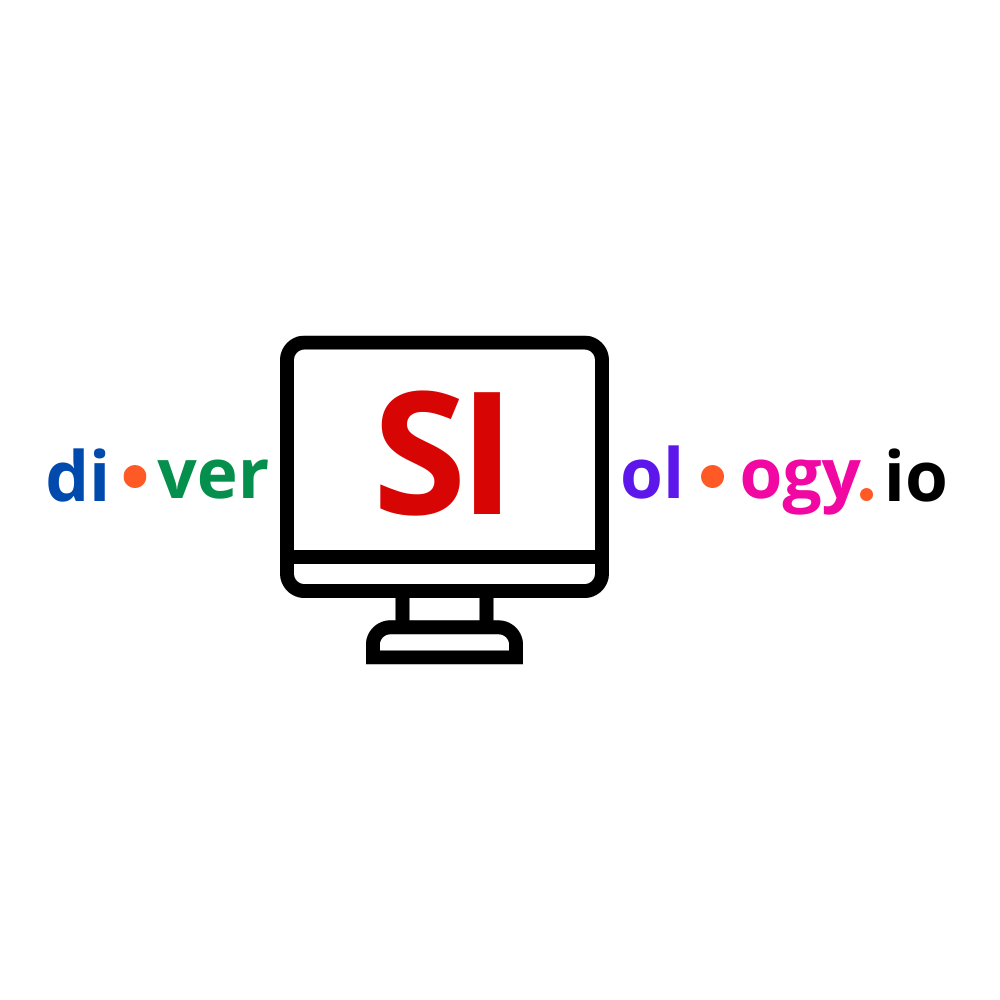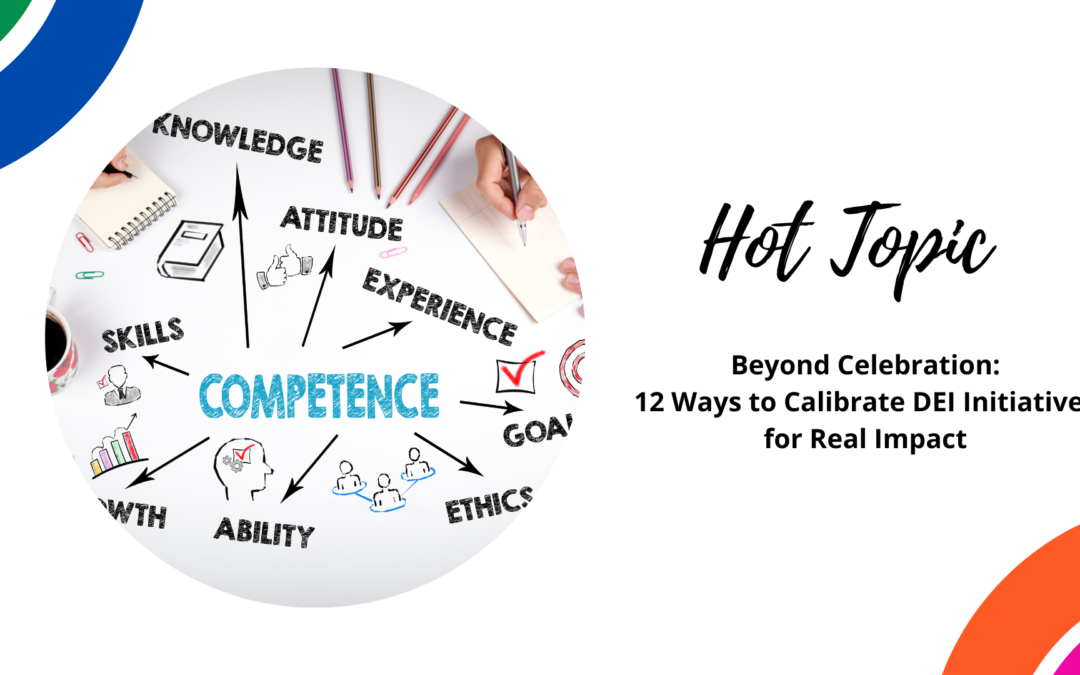“Beyond Celebration: 12 Ways to Calibrate DEI Initiatives for Real Impact”
As Diversity Month unfolds, it is essential not merely to celebrate the strides we have made but also to critically assess and recalibrate our Diversity, Equity, and Inclusion (DEI) efforts. This recalibration requires a thorough examination of what’s working, what isn’t, and how we can refine our strategies to foster genuinely inclusive environments. Drawing upon a wealth of experience shared by leaders in Diversiology’s Inclusive Insights Series, this article provides a comprehensive guide on enhancing our DEI initiatives.
1. Aligning DEI to Business Strategy 📊
Rachel Williams on strategic alignment: “What makes the case for this work internally and externally is we have to have a strategy… I make sure that the activations, the programs, the interventions that I want to see around DEI are all connected to that [organizational business] strategy.”
Calibration Point: This insight suggests recalibrating DEI strategies to closely align with overall business objectives, ensuring DEI initiatives support broader corporate goals.
2. Strategy and Execution in DEI 🎯
Rocki Howard emphasizes the need for both strategy and detailed planning: “You need a strategy…but you also need a plan…Plans drive activity and accountability. And if you don’t have both, it ain’t gonna work.”
Calibration Point: This underscores the necessity to ensure that DEI efforts are supported by both a strategic framework and a practical implementation plan to ensure effectiveness.
3. People Leaders Collaborating 👥
Anessa Fike highlights the importance of people as the foundation of DEI work: “We as people leaders, and DEI leaders… we are all people leaders, this work is about looking at the value of the business and the corporation overall.”
Calibration Point: This calls for recalibration to view DEI not just as a program but as an integral strategy to support the organization’s most valuable asset, people.
4. Addressing Educational Gaps 📚
Tara Turk-Haynes discusses the need to address misinformation and educational gaps: “We don’t have uniform education in this country…[DEI practices help people understand] some things you may not know about this group of people that you are working alongside that you need to know.”
Calibration Point: Tara’s insight helps position DEI as a necessary tool to fill the gaps in understanding and misinformation that exist within workplace cultures.
5. Enhancing Recruitment with AI 🤖
Marcus Sawyerr talks about using AI to innovate recruitment: “AI for me at this point in time is all about empowering the recruiters to do better so they can be in the driving seat.”
Calibration Point: This suggests recalibrating recruitment processes to leverage technology thoughtfully to foster diversity and break down biases.
6. Leadership’s Role in DEI 👨💼
Ben Madden emphasizes leadership’s impact: “Champion your people, making sure that you are taking a true look at all of the people that are in your organization.”
Calibration Point: This calls for leaders to actively leverage inclusivity as a tool in the leader’s toolbox helping to acknowledge and champion the work that is done by ALL people in your organization.
7. Long-term Investment in DEI ⏳
Chelley Conley on the need for sustained commitment: “It can sometimes take up to 3 to 5 years on average to see any type of return.”
Calibration Point: This perspective advocates for recalibrating expectations around the time frame for seeing the benefits of DEI initiatives, emphasizing change management requires patience and sustained investment and effort.
8. Valuing Neurodiversity 🧠
Grant Harris shares his personal journey to highlight the value of neurodiversity: “My wife led me to my autism diagnosis…it’s led to so many positives in terms of how I work in the professional realm.”
Calibration Point: Harris’ story encourages organizations to recalibrate how neurodiversity is perceived and integrated within workplace strategies.
9. Reducing Tokenism and Inclusive Sourcing 🔍
Heather Redisch advises on the need for authentic sourcing practices: “In order to be a truly inclusive sourcer, you need to have the company’s culture and examples that demonstrate the company is an inclusive culture.”
Calibration Point: This calls for a recalibration in how sourcing strategies are developed to ensure they genuinely reflect the company’s commitment to diversity and transparently communicate the current state of the company’s inclusivity aptitude.
10. Confronting the Challenges of Tokenism 🚫
Reena Tagger Saint Louis discusses the personal impact of tokenism: “I think it’s a great example of token
ism and how that can really backfire because guess what? Now I’m the only one on the team who has any sort of understanding of my lived experience as a mom, as a woman, as a BIPOC woman.”
Calibration Point: This insight necessitates recalibrating team composition and support systems to ensure individuals aren’t isolated due to tokenistic practices.
11. DEI as a Strategic Connection 🌉
Torin Ellis about DEI as a strategic tool: “It’s about making connections that bridge gaps—DEI helps us understand each other better, fostering a collaborative environment.”
Calibration Point: Ellis highlights the need to recalibrate DEI as a strategic humanity practice aimed at bridging gaps and fostering understanding across diverse groups.
12. Embedding DEI into the Talent Management Lifecycle 🔄
Corey Berkey underscores the critical integration of DEI into daily business practices: “You can have inclusion without engagement, but you can’t have engagement without inclusion. It’s not good… If there’s not the engagement piece to balance that, I think that you are going to fail.”
Calibration Point: This insight compels organizations to ensure DEI is not just a side initiative but a core component of their talent management strategy, affecting all levels of engagement.
This Diversity Month, take these insights into your organizational strategies. Discuss these strategies within your teams, implement necessary adjustments, and continuously evaluate their impact. Join the Diversiology community to access replays of our sessions and keep this crucial conversation going. Together, we can move beyond celebration towards creating enduringly inclusive cultures that are not only equitable but also integral to our business success.

